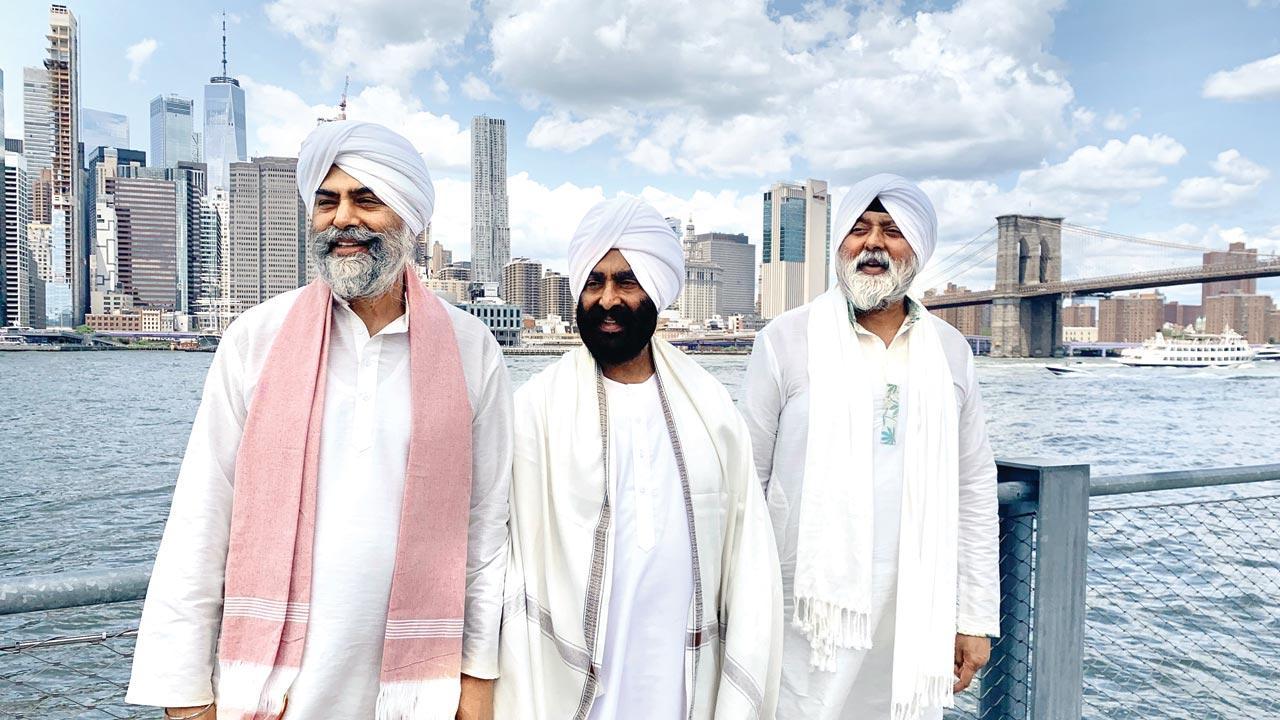A soon-to-release docu series will throw light on the little-known journey of the Partap trio, credited with reviving the gurmat sangeet tradition and making the world fall in love with it

(From left) Davinder, Ravinder and Mohinder Partap moved to the US in 1978. Over the years, they’ve held devotional music concerts in Australia, Thailand, the UK and Europe
Maestro Zakir Hussain with Mohinder, docu maker Kabir Partap’s father
Their legacy, however, is being preserved through a new docu series made by Mohinder’s son, Kabir. “It’s not that the idea [of a documentary] occurred to me now. It’s been brewing in my mind for a while, but my father’s demise expedited the process. I realised that they [Partap brothers] have, over the years, amassed legions of fans across the globe and created a legacy that needs to be celebrated and cherished. They brought the gurmat sangeet, a forgotten art, to the masses,” says Kabir. The documentary will showcase exclusive footage from their shows in Pakistan, London, Kenya and India, and interviews with close associates, along with a deep dive into their style of music, the unwavering brotherhood, cultural clashes, and their journey from being immigrants to proudly carrying their art form. The film, which is currently in production, will be released in English and translated into Punjabi, Hindi and Urdu.
In his teenage years, it was customary for Davinder to accompany his father on travels to perform in India and abroad. In 1972, at the age of 17, he became the youngest musician in history to receive the first prize in the Guru Nanak Dev University contest of 1969, held on the occasion of Guru Nanak’s 500th birthday. Ravinder, on the other hand, took to music relatively late. He initially pursued a sporting life, playing cricket, running, and bodybuilding. It was only when he turned 28 that he took up the tabla, never to look back. His style, we are told, is marked by the Kanar tabla, in which the index finger is dominant. The inherent spiritual quality of their art, feels Ravinder, sets the brothers apart. “When we sing, we are invoking a higher power; it’s a complete surrender to God. We literally
forget everything else when we take the stage.”
Kabir Partap, filmmaker
Having performed for over 40 years, the brothers are, quite naturally, full of delightful anecdotes. Davinder recalls an instance, where he sang a ghazal as a teenager. It was for a programme called the Yuva Vani for a Delhi-based radio station. “After my performance, a staffer came up to me and said that the station director wanted to meet me. I entered the cabin, slightly worried. The lady, whose name I no longer recall, was polite and said to me, ‘Would you mind if I made a suggestion? You sing marvellously. But, you should cut your hair. Believe me, you will shine like a star.’” Davinder remembers being shocked. Raised in a religious household, the suggestion almost seemed blasphemous. “I politely replied that while I do feel like [cutting my hair], I won’t because I hail from a family of kirtankars and I don’t want to hurt them.” Davinder has no regrets.
 Subscribe today by clicking the link and stay updated with the latest news!" Click here!
Subscribe today by clicking the link and stay updated with the latest news!" Click here!







_d.png)



